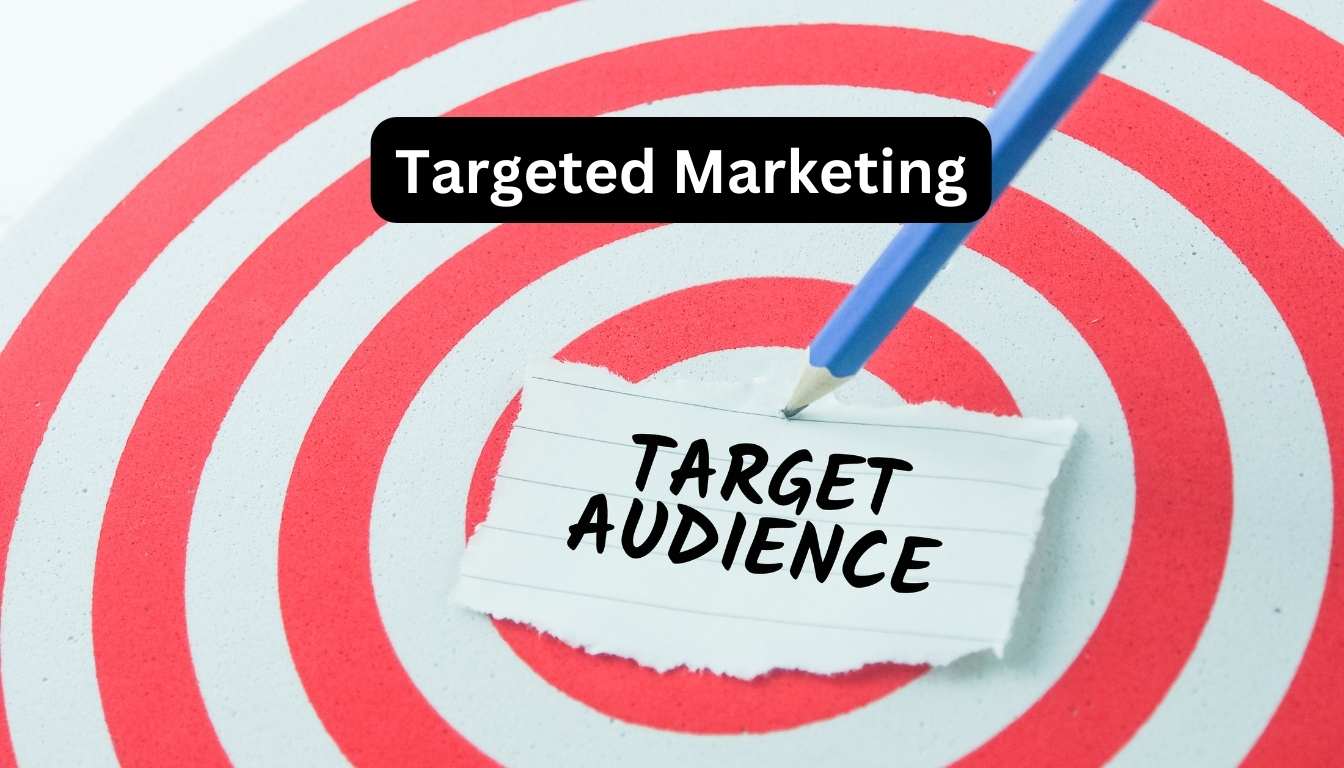A marketing proposal is a crucial tool used by marketers to present their strategies and ideas to potential clients. It is a written document that outlines the project’s objectives, deliverables, timeframes, and estimated costs. A well-crafted marketing proposal not only helps you convey your expertise and understanding of the client’s needs but also persuades prospects to become customers.
Whether you are pitching a social media marketing proposal or any other type of marketing campaign, a compelling marketing proposal can make all the difference in winning the client’s trust and securing the project.
Key Takeaways:
- A marketing proposal is a written document that outlines the project’s objectives, strategies, and estimated costs.
- It is designed to satisfy the client’s business goals and persuade prospects to become customers.
- Researching the client’s target audience, pain points, and industry is essential before creating a marketing proposal.
- The proposal should include a Scope of Work section that outlines the specific marketing tasks you plan to provide.
- Providing estimated time frames for deliverables and outlining the costs and terms of agreement are crucial in a marketing proposal.
Researching the Client
Before writing a marketing proposal, conducting thorough research on the client is essential. This research phase involves gaining a deep understanding of the client’s target audience, industry, products/services, past and current financials, and other relevant details. By gathering this valuable information, you can tailor your marketing proposal to effectively address the client’s needs and objectives.
One crucial aspect of researching the client is creating audience personas. These personas represent the ideal customers that the client is trying to reach. Developing audience personas helps you visualize and understand the target audience’s demographics, preferences, pain points, and buying behaviors. This knowledge enables you to tailor your marketing proposal’s messaging, tone, and content to resonate with the intended audience and maximize its impact.
Another vital component of client research is identifying their pain points and challenges. By uncovering the client’s pain points, you can position your proposal as the solution to their problems. Highlight how your experience and expertise can address these challenges and deliver results. This client-centric approach showcases your understanding of their business and positions you as a valuable partner.
Why Researching the Client Matters
Researching the client is crucial for several reasons. First, it enables you to demonstrate your industry knowledge and expertise. By understanding the client’s industry, you can tailor your marketing proposal to address the specific challenges and opportunities within that sector. This positions you as a trusted advisor who understands the client’s business landscape and can provide meaningful insights and strategies.
Second, thorough research allows you to customize your marketing proposal to resonate with the client’s unique needs and objectives. By addressing their pain points, you can showcase how your proposed marketing strategies will alleviate their challenges and help them achieve their desired outcomes. This personalized approach demonstrates that you have taken the time to understand their business and are committed to delivering measurable results.
Finally, researching the client sets the foundation for a strong and collaborative partnership. By investing time in understanding their target audience and industry, you can develop a marketing proposal that aligns with their goals and values. This fosters trust and confidence in your abilities, increasing the likelihood of securing their business.
By conducting comprehensive research on the client, including audience personas and identifying pain points, you can create a marketing proposal that speaks directly to their needs and positions you as the ideal partner to help them achieve their business objectives.
Scope of Work
When preparing a marketing proposal, it is essential to include a detailed Scope of Work section. This section provides an overview of the specific marketing tasks that you plan to undertake on behalf of the client. It outlines the services you will provide and illustrates the value you bring to the table.
For instance, if you are creating a social media marketing proposal, the Scope of Work may include tasks such as:
- Creating a social media content calendar
- Managing and scheduling posts across different platforms
- Developing engaging and shareable social media content
- Analyzing social media metrics to track performance
- Implementing targeted ad campaigns to maximize reach
The Scope of Work should be comprehensive and align with the client’s objectives. It is crucial to highlight the unique marketing tasks that differentiate your proposal and demonstrate your expertise in the specific field, such as social media marketing. By clearly listing the tasks you will undertake, you show the client that you understand their needs and have the capabilities to deliver results.
| Marketing Task | Description |
|---|---|
| Creating a social media content calendar | Developing a comprehensive plan for social media content, including topics, formats, and posting schedules. |
| Managing and scheduling posts | Regularly posting content across various social media platforms and scheduling posts in advance for consistent visibility. |
| Developing engaging content | Creating captivating and relevant content that resonates with the target audience and encourages interaction and sharing. |
| Analyzing social media metrics | Monitoring and assessing the performance of social media campaigns using key metrics such as engagement, reach, and conversions. |
| Implementing targeted ad campaigns | Designing and executing paid advertising strategies to reach specific demographics and expand the client’s social media presence. |
Timeframes and Deliverables
When creating a marketing proposal, it is crucial to provide estimated time frames for deliverables. This allows the client to have a clear understanding of the project timeline and make well-informed decisions. Whether you are developing a comprehensive marketing strategy or a social media marketing proposal, outlining the estimated time frames for each task is essential. It helps set expectations and ensures efficient project management.
Deliverables are the tangible outcomes or results that clients can expect from your marketing proposal. They represent the value you will provide and serve as a guide for the client’s investment. In a social media marketing proposal, for example, deliverables may include creating a social media planning template, designing engaging graphics, and developing high-quality content. By clearly defining the deliverables, you demonstrate your expertise and showcase the specific ways you will help the client achieve their goals.
By incorporating estimated time frames and deliverables into your marketing proposal, you establish a transparent and organized approach. This instills confidence in the client and shows them that you have a clear plan in place. It also allows them to assess the feasibility of the proposed project and make informed decisions based on their own priorities and timelines. This level of detail and clarity sets you apart as a professional marketer who values effective project management and client satisfaction.
Costs and Terms
When creating a marketing proposal, it is important to provide clear and detailed information about the costs and terms of the project. This section outlines the financial aspects and agreement conditions that both parties need to consider.
Cost Estimation
Include an estimate of the costs associated with the proposed marketing project. It is essential to be transparent and provide a breakdown of the expenses involved. This will help the client understand the investment required and make an informed decision.
Pay Rate
Specify the pay rate for your services. This can be calculated based on various factors such as the number of words, duration of the project, or a fixed weekly rate. Clearly state the pay rate to avoid any confusion or misunderstandings.
Payment Requirements
Clearly outline the payment requirements and conditions. This may include details such as a deposit or an upfront payment before the project commences, as well as expectations for subsequent payments. Ensure that both parties are aware of the payment terms to avoid any delays or disputes.
Work Location
If relevant, indicate whether the work will be conducted on-site or remotely. This is particularly important for projects that involve physical presence or require specific equipment. Clarifying the work location will help manage expectations and ensure a smooth workflow.
Guarantees and Contract Termination
Include any guarantees or conditions related to the proposed work. This can cover aspects such as the quality of deliverables, adherence to timelines, or satisfaction guarantees. Additionally, outline the conditions for contract termination, protecting both parties’ interests.
Pricing Schedule
| Item | Description | Cost |
|---|---|---|
| Marketing Strategy Development | Creation of a comprehensive marketing strategy tailored to the client’s needs. | $5,000 |
| Social Media Management | Monthly management of social media platforms, including content creation and engagement. | $2,500/month |
| Email Marketing Campaign | Development and execution of an Email Marketing Campaign to drive customer engagement. | $3,000 |
Keep in mind that the pricing schedule can vary based on the specific requirements of each project. It is essential to have a discussion with the client to determine their needs and provide a customized pricing proposal.
Measuring Results
For those looking to combine marketing efforts with streamlined technical solutions, a well-crafted request for proposal template is invaluable. It can enhance your ability to secure reliable services tailored to your business needs. The success of a marketing proposal lies in the ability to measure its outcomes and demonstrate the value of your services. By outlining your approach to measuring results, you can instill confidence in your potential clients and showcase the effectiveness of your strategies.
Metrics for Success
When crafting your marketing proposal, it is essential to identify the key metrics that align with the client’s goals. These metrics can include a range of factors such as organic and paid traffic, social media engagement, and conversions. By selecting measurable metrics, you can track progress and provide tangible evidence of your campaign’s impact.
Organic and Paid Traffic
One metric to consider is organic and paid traffic. By analyzing website analytics, you can determine the effectiveness of your marketing efforts in driving traffic to the client’s website. This can be further segmented into organic traffic, which represents visits from search engines, and paid traffic, which results from online advertising campaigns.
Social Media Engagement
Another metric to consider is social media engagement. This can include the number of likes, comments, shares, and followers on platforms such as Facebook, Twitter, and Instagram. By monitoring social media interactions, you can gauge the level of audience engagement and the impact of your social media marketing strategies.
Conversions
Ultimately, conversions are a crucial metric for measuring the success of a marketing campaign. Whether it’s product purchases, newsletter sign-ups, or inquiries, conversions indicate how effectively your marketing efforts are influencing the audience to take action. By tracking conversions, you can provide concrete evidence of your campaign’s impact on the client’s business goals.
| Metric | Description |
|---|---|
| Organic and Paid Traffic | Measure the effectiveness of driving traffic to the client’s website through organic and paid channels |
| Social Media Engagement | Gauge the level of audience engagement through likes, comments, shares, and followers on social media platforms |
| Conversions | Track the number of desired actions taken by the audience, such as product purchases or inquiries |
By including these metrics in your marketing proposal, you not only demonstrate your commitment to data-driven decision making but also provide a clear framework for evaluating the success of your proposed strategies.
Pros of a Marketing Proposal
Including a marketing proposal in your client pitch offers several advantages that can significantly impact your business. Let’s explore the pros of incorporating a well-crafted marketing proposal into your approach:
- Establishing Trust: A marketing proposal serves as a powerful tool to establish trust with potential clients. By presenting a comprehensive plan, demonstrating your industry knowledge, and addressing their specific needs, you can instill confidence and credibility, positioning yourself as a trusted partner.
- Positioning as an Expert: A marketing proposal showcases your expertise and in-depth understanding of the client’s industry and marketing challenges. By providing tailored solutions and data-driven strategies, you can position yourself as an expert in your field, distinguishing yourself from competitors.
- Differentiation: In a highly competitive market, a well-crafted marketing proposal allows you to stand out from your competitors. By highlighting your unique value proposition, innovative ideas, and success stories, you can demonstrate the distinctive qualities that set your business apart. This can be a decisive factor in winning over potential clients.
- Clear Communication: A marketing proposal provides a clear and concise way to communicate your products and services to potential clients. It outlines the scope of work, deliverables, and expected outcomes, ensuring that both parties have a shared understanding of the project. This clarity can prevent miscommunications, align expectations, and foster a stronger client relationship.
Incorporating a marketing proposal into your client pitch not only enhances your chances of winning projects but also helps build long-term partnerships based on trust, expertise, and differentiation.
| Pros of a Marketing Proposal | Explanation |
|---|---|
| Establishing Trust | Builds a foundation of trust and credibility with potential clients |
| Position as an Expert | Highlights your industry knowledge and expertise, setting you apart |
| Differentiation | Showcases what makes your business unique, standing out from competitors |
| Clear Communication | Provides a concise and comprehensive overview of your products and services |
Marketing Proposal Tips From the Experts
When it comes to crafting a compelling marketing proposal, experts in the field have shared their valuable advice and insights. By following their tips, you can enhance your proposal and increase your chances of winning clients.
- 1. Understand the client’s specific goals and challenges: Prioritize understanding your client’s unique objectives and pain points. Tailor your proposal to address their specific needs and demonstrate how your services can help them achieve their goals.
- 2. Focus on your unique value proposition: Highlight what sets you apart from your competitors. Showcase your expertise, experience, and the benefits that your services can bring to the client’s business.
- 3. Use video to walk through the proposal: Consider creating a video presentation to accompany your written proposal. This can help you effectively communicate your ideas, engage the client, and make a lasting impression.
- 4. Ensure clarity and trust in your proposal: Use concise and straightforward language to convey your message. Make sure all terms, costs, and deliverables are clearly stated and easy to understand. Build trust by providing references, testimonials, or case studies that showcase your track record of success.
Looking for inspiration? Take a look at these well-structured marketing proposal examples:
These examples can serve as a guide to help you structure your own marketing proposal and make it even more persuasive and effective.
Conclusion
In conclusion, the importance of a marketing proposal cannot be overstated. It serves as a powerful tool in achieving business goals by effectively communicating project details to clients. A well-crafted marketing proposal should include key elements such as thorough research on the client, a clear scope of work, realistic timeframes and deliverables, transparent costs and terms, a focus on measuring results, and an emphasis on trust and differentiation.
By following expert tips and examples, marketers can create a compelling marketing proposal that helps them stand out from competitors and win clients. The key elements mentioned above provide a solid foundation for creating a successful proposal. However, it is essential to adapt and customize these elements to meet the unique needs of each client and project.
To streamline the proposal creation process and ensure consistency, marketers can also consider creating a marketing proposal template. This template can be customized with the specific details of each client and project, resulting in a professional and polished proposal that saves time and effort.




